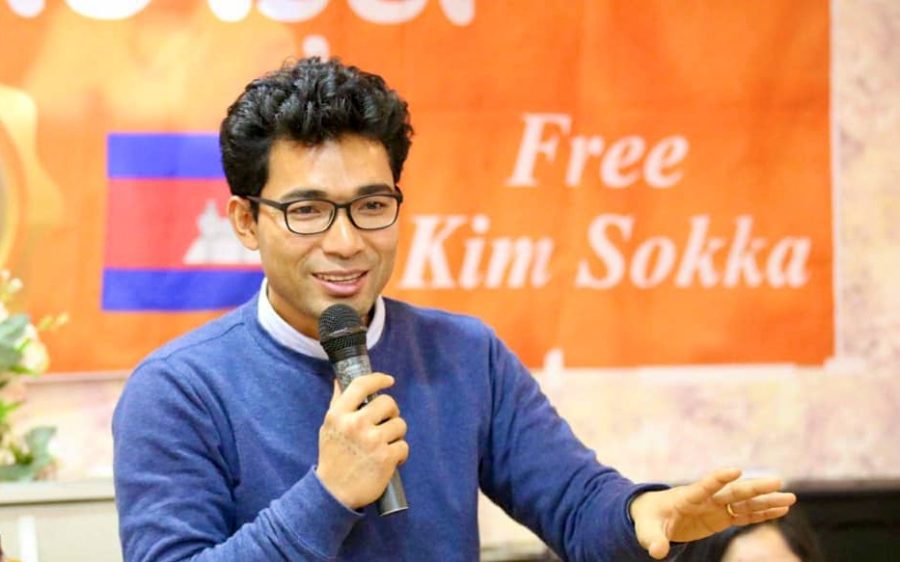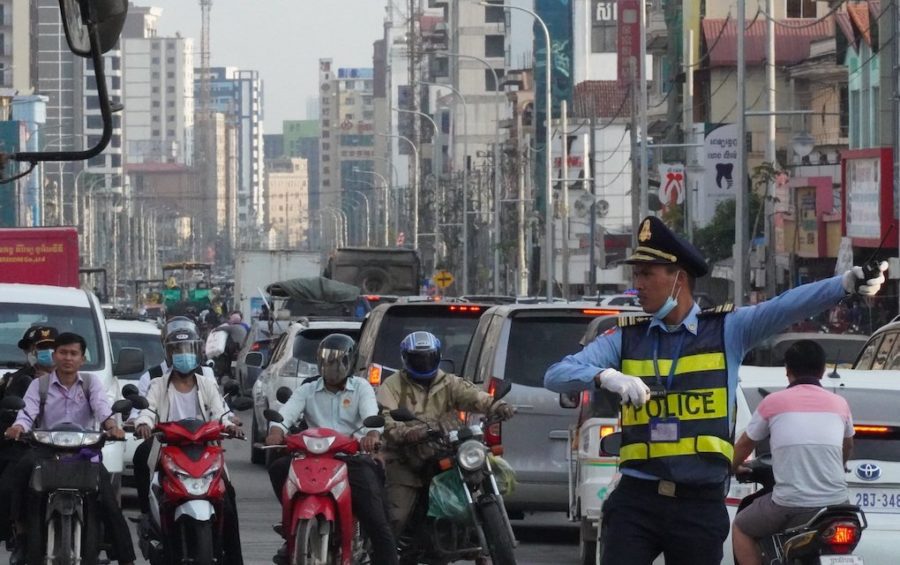A former opposition youth leader in South Korea has asked Prime Minister Hun Sen for forgiveness alongside nine colleagues, saying they had advocated nonviolently for the CNRP but strongly opposed exiled party co-founder Sam Rainsy’s return attempt in 2019.
Rainsy’s November 9, 2019, return attempt has led to mass trials against CNRP supporters, though Rainsy ultimately did not make it onto his flight out of Paris.
Yim Sinorn, who stepped down as president of the CNRP in South Korea in June, submitted a letter dated Wednesday to Hun Sen asking that authorities drop all charges against him and his colleagues.
In the letter, Sinorn acknowledges that he and his colleagues led nonviolent advocacy demonstrations for the opposition CNRP, and that they were in line with the law.
However, the letter says Rainsy’s return attempt in 2019 caused insults to the king and incited mass uprisings among the public and armed forces against the government. The letter says that he and his close associates not only did not support the campaign, but strongly opposed it.
Many CNRP supporters gathered in Thailand ahead of Rainsy’s promised return, and Rainsy had called on armed forces to turn their guns against Hun Sen. But little transpired in the end.
“The 10 members of the youth movement would like to ask the authorities to drop the charges with compassion and forgiveness,” the letter says.
Sinorn, once an outspoken critic of the Cambodian government, said in June while resigning from the CNRP that he wanted to quit politics and resume an ordinary life. The CNRP, once Cambodia’s main opposition party and the only viable challenger to the ruling CPP, was controversially dissolved in 2017.
CPP spokesman Sok Eysan said it was unlikely that Hun Sen could fulfill Sinorn’s request, as their cases were already in the hands of the court.
“Yim Sinorn wrote a request letter and this is his right. He knows his mistake. But if the case has reached the court, no one can forgive. [One can] only let the court proceed according to the law. But if it is outside the court and there is no serious guilt, it may be possible [to help],” Eysan said.
Sek Socheat, executive director of the Mindset Development Organization — an NGO that says its aim is to change attitudes, such as around environmental hygiene, to develop society — said the root cause of the former opposition in South Korea asking for forgiveness was that they had lost faith in CNRP, which was divided.
“The internal divisions of the CNRP have made this group of young people, who love democracy, love social work, and want to help society, be kicked to one side and suffer because of its internal conflicts,” Socheat said.
He said the government should drop the charges against these young people to give them the chance to participate in the development of society.
“We see that this conflict is not easy to end, and the youths in Korea are not Korean people and they cannot live there for life. So at this stage, I think it is also appropriate that they consider asking for understanding or rid them of the charges,” he said.
On March 1, the Phnom Penh Municipal Court sentenced Rainsy to 25 years in prison, finding him guilty of a plot to overthrow the government with his November 9, 2019 return attempt. CNRP vice presidents Mu Sochua and Eng Chhai Eang were sentenced to 22 years, while other senior party officials were sentenced to 20 years in jail. All are overseas.
More than 100 other defendants are still before the courts as part of mass trials related to Rainsy’s attempted return.












